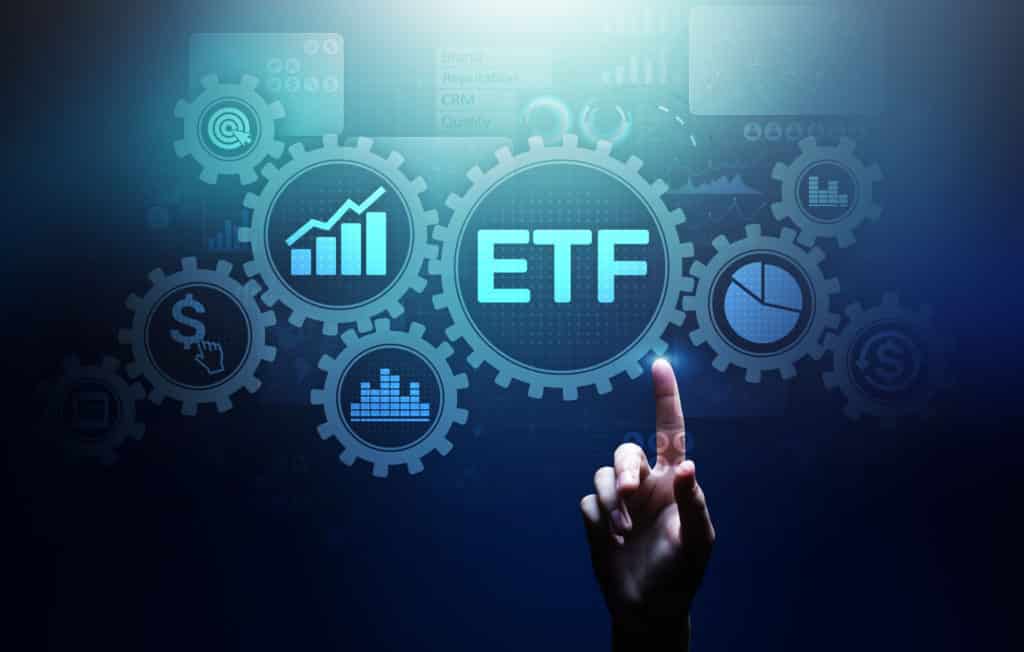

Stephane Degroote, head of ETFs & derivatives EMEA at FTSE Russell, said sustainability is involved in all the discussions the index, data and analytics provider is having regarding exchange-traded funds.
Degroote told Markets Media: “Demand has become more sophisticated as issuers use factors to achieve specific environmental, social and governance exposures.”
Lida Eslami, head of business development for exchange traded products and international order book at London Stock Exchange, told Markets Media there has been more demand for ESG ETFs. “We currently list 19 sustainable ETFs and they have made up a quarter of new listings,” she added.
Last week HSBC Global Asset Management launched three ETFs on the London Stock Exchange which track the newly created FTSE Russell ESG Low Carbon Select Indices. FTSE Russell is owned by the London Stock Exchange Group.
“HSBC’s ETFs are an example of the next generation of smart sustainability as from the start they defined a 20% rise in ESG score, a 50% reduction in carbon emissions and a 50% reduction in fossil fuel reserves relative to the parent index,” added Degroote.
Olga De Tapia, global head of ETF sales at HSBC Global Asset Management, said in a statement that the indices aim to capture stocks with lower fossil fuel reserves intensity, including alternative energy companies. “The indices’ target of a 50% reduction on fossil fuels reserves allows them to include those companies that are at the forefront of this transition,” she added.
FTSE Russell worked closely with HSBC Global Asset Management to develop bespoke indexes that integrate ESG ratings, carbon emissions and reserves considerations, paving the way for a new generation of ETFs. More details: https://t.co/MdIcMiPqIm pic.twitter.com/5adnXqikRR
— FTSE Russell (@FTSERussell) June 15, 2020
Another example of sophisticated demand was FTSE Russell launching a new generation of climate indexes – the FTSE TPI Climate Transition Index Series – to provide investors with benchmarks to align a broad equity portfolio with climate transition and the goals of the Paris Agreement.
The first in the suite, FTSE Developed ex-Korea TPI Climate Transition Index, debuted in January and was designed in collaboration with The Church of England Pensions Board and the Transition Pathway Initiative. The incorporation of TPI’s core assessments on management quality provides the index with a forward-looking capability, assessing companies on their plans for transition to a low carbon economy.
Fixed income ETFs
HSBC Global Asset Management said it also plans to develop a fixed income ETF platform, an asset class where DeGroote expects further growth in ESG.
“There will be growth in sustainable fixed income ETFs which bring climate considerations into the asset class,” he said.
Degroote continued that FTSE Russell is expanding in fixed income and aims to define a corporate bond smart sustainable index, which will not just be based on exclusions.
Last year FTSE Russell launched the first government bond index to adjust index weights based on each country’s preparedness and resilience to climate change risk which aims to reduce climate risk compared to the standard FTSE World Government Bond index (WGBI) while minimising tracking error. The new index uses climate risk modelling developed by Beyond Ratings, the fixed income ESG analytics provider acquired by LSEG last year.
“Half of our pipeline is now related to fixed income, compared to two years ago when we were not having any discussions,” added Degroote.
Eslami agreed there has been a huge shift of demand into fixed income ETFs with an increase in listings and trading activity. She said: “Out of the top 20 most traded ETFs, seven to eight are fixed income, which was not the case a few years ago.”
Adeline Diab, head of ESG & thematic investing EMEA at Bloomberg Intelligence, said at the Eurex Digital Derivatives Forum last week that ESG ETFs had inflows of $16bn in the year to date and had outperformed non-ESG equivalents.
Diab said: “More than 60% of ESG ETFs in Europe and the US outperformed their benchmark. ESG has confirmed its place in the investment world for the next decade.”
She continued that as a result of the Covid-19 pandemic investors have been focussing more on the social aspect of ESG, such as how companies treat their workers and show leadership in the crisis.
Other asset classes
Last week the Taiwan Futures Exchange listed the first ESG futures contract in the Asia Pacific region.
Taiwan Futures Exchange (TAIFEX) has licenced the FTSE4Good TIP Taiwan ESG Index for its latest futures offering launching on 8 June, the first ESG based future product launched in the APAC region, and the first product by TAIFEX linked to the index. #ESG https://t.co/UuFNYKwJJZ
— FTSE Russell (@FTSERussell) June 4, 2020
Billy Wang, president and chief executive of Taiwan Index Plus, said in a statement: “With growing demand of ESG investing recently, the index has been adopted in diversified applications from government pension fund, ETF, mutual funds, and now to futures product by TAIFEX. This has effectively constructed an socially responsible investment ecosystem in our market by providing comprehensive vehicles for domestic as well as foreign market participants to conduct investing, trading, risk management and hedging activities in Taiwan.”
Degroote continued that climate considerations are also becoming mainstream in other asset classes such as listed real estate. The FTSE EPRA Nareit Green Indexes were launched in 2018 to allow investors to integrate climate risk into listed real estate portfolios
He said: “We listed green REITs at the end of last year and more are in the pipeline as allocations to real estate are growing.”







